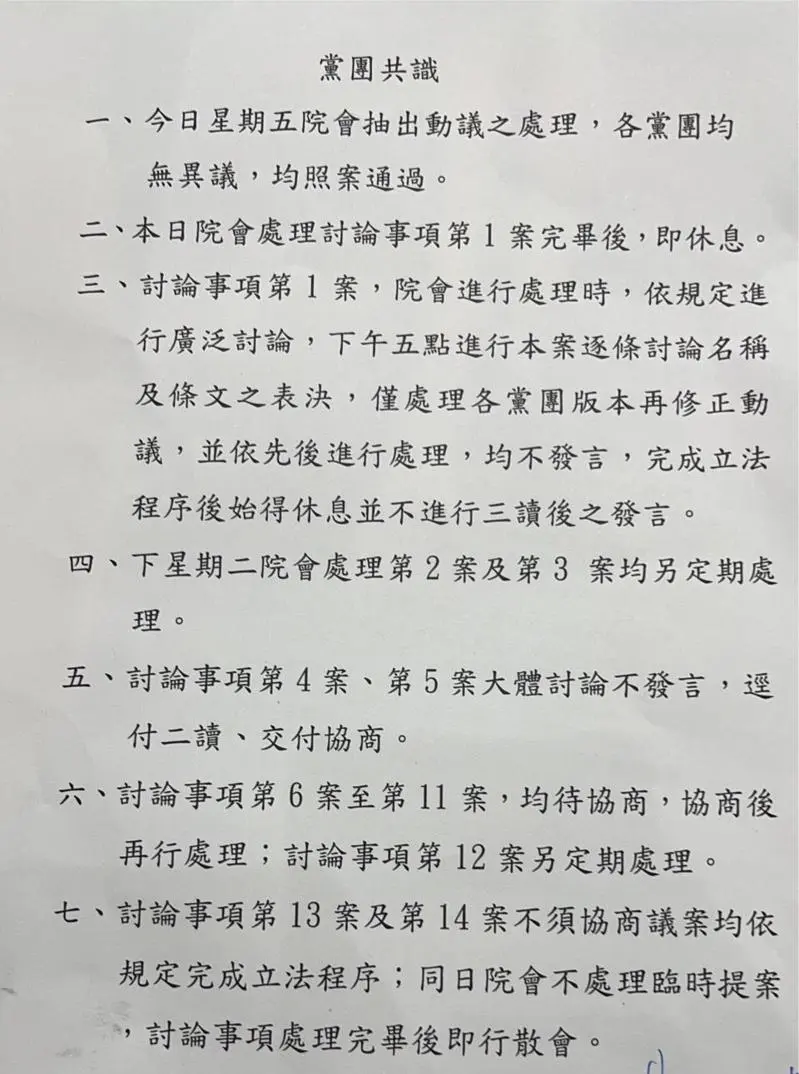TAIPEI — Taiwan’s Legislative Yuan is set for a high-stakes voting battle today as lawmakers debate the Executive Yuan’s proposed NT$410 billion tariff relief bill aimed at bolstering national security and economic resilience amid international trade tensions.
The original bill, titled the “Special Act to Strengthen Economic, Social, and National Security Resilience in Response to International Situations,” was drafted in response to the impact of U.S. reciprocal tariffs. But by late afternoon, the legislature’s agenda had evolved into a fierce debate, with the ruling and opposition parties pushing competing amendments.
At the heart of the debate is the Kuomintang (KMT) caucus’s proposal to scrap the NT$100 billion subsidy for state-run power utility Taipower and instead distribute NT$10,000 in cash subsidies per citizen to stimulate consumption and ease economic burdens. The revised proposal would increase the bill’s total to NT$545 billion.
Legislative Yuan Speaker Han Kuo-yu convened government-opposition consultations early this morning in an attempt to forge consensus. All three major parties—KMT (blue), DPP (green), and TPP (white)—agreed to move forward with the bill today, with article-by-article discussions and voting scheduled for 5 PM.

Competing Proposals:
-
Executive Yuan (DPP-backed): Retains original NT$410 billion plan, including Taipower subsidies.
-
KMT Version: Eliminates Taipower subsidies; adds NT$10,000 cash handout per citizen to enhance spending.
-
Taiwan People’s Party (TPP) Version: Offers a compromise with a NT$6,000 cash handout per citizen.
Despite this alignment on scheduling, the final outcome remains uncertain. Vice Speaker Jiang Qichen is on leave due to bereavement, and KMT legislator You Hao is currently in Nantou conducting a disaster inspection. If he cannot return in time, the vote count between the blue and green camps could end in a 51–51 deadlock.
In such a scenario, Speaker Han Kuo-yu may be required to cast the deciding vote, placing him at the center of a politically sensitive decision that could define the Legislative Yuan’s fiscal direction in the face of international economic headwinds.
Voting results are expected later this evening, and all speeches will cease following the bill’s third reading. The outcome may not only determine immediate financial policy but also signal the strength of party alliances heading into future legislative sessions.



